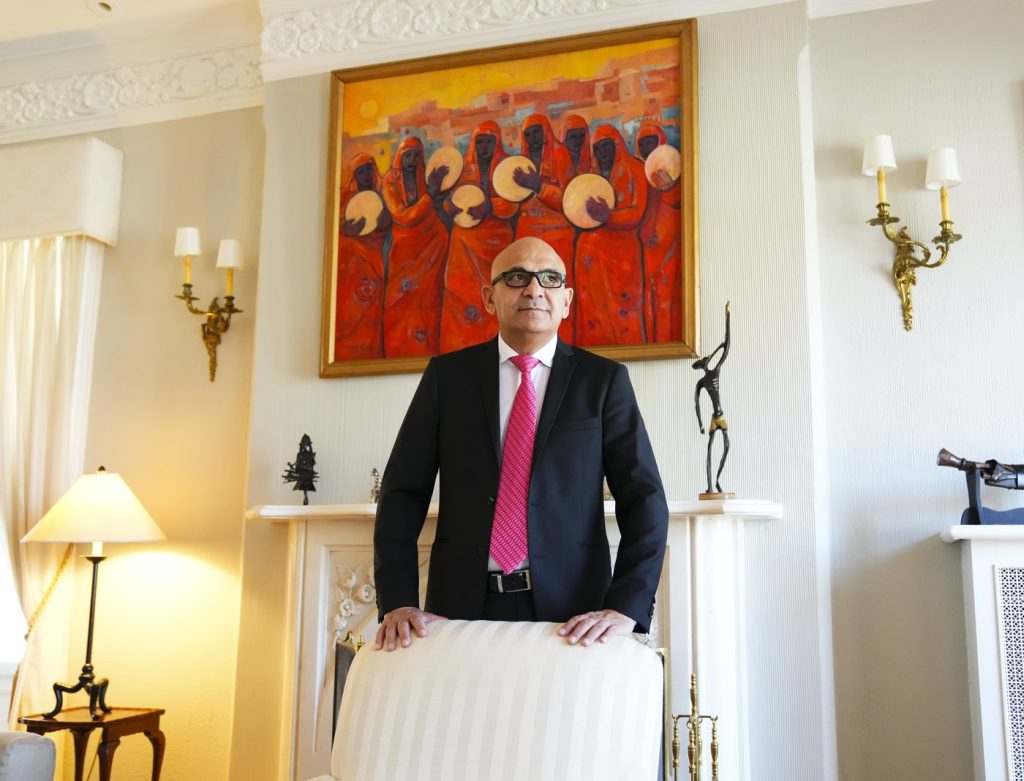OTTAWA — Canadian Prime Minister Mark Carney is set to engage in discussions with South African officials during his visit to Johannesburg for the G20 summit. These talks are centered around a prospective deal aimed at boosting bilateral trade and investment between Canada and South Africa, which is informally dubbed a "gas-for-wine" agreement. South African High Commissioner Rieaz Shaik articulated this vision, stating that the deal could facilitate greater imports of South African wine into Canada in exchange for Canadian natural gas exports.
The negotiations are expected to focus on five key sectors: agribusiness, infrastructure, mining, energy, and advanced technologies. Shaik mentioned that they are not pursuing a traditional trade agreement centered solely on goods but rather a foreign investment promotion and protection agreement that emphasizes private sector engagement. A significant challenge in these discussions involves establishing a "mutually acceptable dispute-resolution mechanism" for the sectors at hand.
According to Shaik, senior officials from South Africa plan to visit Saskatchewan soon. He praised the province for its advanced efforts in moving seed products to markets that are increasingly interested in non-meat protein options. Additionally, there is a keen interest on South Africa's part to learn from Canada's cold-chain systems, which are crucial in preventing food spoilage.
Aside from wine imports, South Africa expresses its interest in procuring liquefied natural gas (LNG) from Canada, contingent upon the establishment of the necessary export infrastructure. Shaik highlighted the role of Canadian firms that are assisting South Africa in transitioning to cleaner coal solutions as the country seeks to reduce its dependence on fossil fuels.
Moreover, he noted that Canada's Export Development Canada and FinDev Canada agencies could potentially aid Canadian investors in capitalizing on substantial infrastructure projects that South Africa is currently developing. Shaik also pointed to the ongoing merger of Anglo American and Teck Resources to form a new critical minerals firm called Anglo Teck, which he characterized as "a game-changer" for copper exports. He believes that South Africa's expertise in deep mining could also provide valuable insights for Canadian industries.
In terms of technological cooperation, Shaik mentioned prospects for collaboration between Canada and South Africa in advanced manufacturing, artificial intelligence, and nuclear technology usage. With South African President Cyril Ramaphosa hosting the G20 leaders' summit, there is an opportunity for both leaders to discuss these ongoing trade talks as early as Friday.
Federal Canadian officials, who remain unnamed, provided insights regarding Carney's upcoming engagements in South Africa and the United Arab Emirates. They indicated that Canada is striving to forge a framework for enhanced commercial and diplomatic relations with South Africa.
Shaik noted that both nations are navigating a similar challenge of dependence on the U.S. market. He likened South Africa's efforts to create a continent-wide free trade area to Canada's initiatives aimed at dismantling interprovincial trading barriers. He expressed a sense of enthusiasm about the similarities between the two countries and how they might collaborate to drive innovation and productivity.
Additionally, Shaik reflected on the historical connections between Canada and South Africa, recalling Canada's critical role as an advocate against the apartheid regime through trade unions and government support. He highlighted Canada's significant contributions to helping South Africa establish a robust democratic framework with a strong constitution.
In closing, he referred to the relationship between Canada and South Africa as a "family relationship," emphasizing a strong historical foundation. However, he also pointed out that this relationship has not been dynamic or interactive in recent years, suggesting a necessity for renewed collaboration and engagement.










